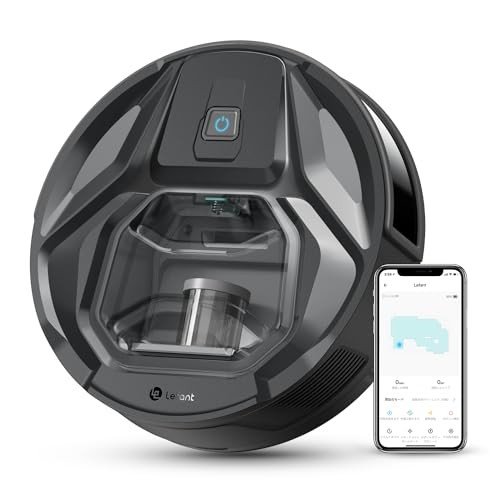Why Robot Vacuum Cleaner Comparison Is More Difficult Than You Imagine

Robotic Vacuum Cleaner Comparison: The Future of Home Cleaning
In the last few years, robotic vacuum cleaners have changed the method we keep cleanliness in our homes. With developments in innovation and the incorporation of expert system, these devices have actually evolved from mere novelty products to necessary family home appliances. This short article offers a thorough comparison of a few of the leading robotic vacuum cleaners on the market, helping customers make informed decisions when choosing a model that suits their requirements.
Comprehending Robotic Vacuum Cleaners
Robotic vacuum cleaners are autonomous machines designed to clean floorings automatically. Geared up with sensors, they navigate around barriers and change their cleaning routes for maximum effectiveness. The key functions that differentiate different designs include suction power, battery life, app connectivity, navigation technology, and price.
Secret Features to Consider
When comparing robotic vacuum, prospective purchasers ought to consider the following elements:
- Suction Power: Measured in Pascals (Pa), suction power figures out the efficiency of selecting up dirt and particles.
- Battery Life: The length of time a vacuum can run before requiring a recharge substantially affects its cleaning performance.
- Navigation Technology: Models may utilize simple random navigation or innovative mapping innovations (like LIDAR) that allow them to develop a map of the home.
- Smart Features: Connectivity to smartphone apps or smart home systems can improve functionality and control.
- Filter Type: HEPA filters are advised for allergic reaction victims, as they trap irritants and enhance air quality.
Comparison of Top Robotic Vacuum Cleaners
Below is a comparison table of a few of the very best robotic vacuum readily available in 2023:
| Model | Suction Power (Pa) | Battery Life (min) | Navigation Technology | Smart Features | Price (GBP) |
|---|---|---|---|---|---|
| iRobot Roomba i7+ | 1700 | 75 | Smart mapping | App control, voice command | ₤ 949 |
| Roborock S7 | 2500 | 180 | LIDAR | App control, multi-floor | ₤ 649 |
| Neato D7 | 2000 | 120 | LIDAR | App control, zone cleaning | ₤ 599 |
| Ecovacs Deebot T10 | 3000 | 150 | Smart mapping | App control, room detection | ₤ 799 |
| Shark IQ Robot | 1200 | 90 | Random | App control, self-emptying | ₤ 399 |
Explanation of the Table
- iRobot Roomba i7+: Known for its robust cleaning ability, it includes smart mapping technology that enables it to designate specific areas for cleaning. Robotic Vacuum Cleaner Best -emptying feature is a plus for convenience.
- Roborock S7: This model stands out in suction power and battery life, making it ideal for bigger homes. Its LIDAR innovation assists produce an efficient cleaning path, and it can vacuum and mop at the same time.
- Neato D7: The D-shape design permits much better corner cleaning, and it includes strong suction power. Its LIDAR navigation allows it to draw up cleaning areas accurately.
- Ecovacs Deebot T10: Boasting the highest suction power and advanced navigation, this model can deal with numerous floors effectively. It's a flexible choice for homes with differing floor types.
- Shark IQ Robot: An affordable option that still offers smart functions. Its self-emptying ability and app combination make it a practical choice for those searching for a strong cleaning companion without breaking the bank.
Advantages of Robotic Vacuum Cleaners
Robotic vacuum cleaners provide various benefits that contribute to their rising appeal amongst customers:
- Time-Saving: Automated cleaning permits users to release up important time that can be spent on other activities.
- Convenience: Many models can be arranged via apps to clean at particular times, reducing manual effort.
- Ease of access: They can reach under furniture and in tight areas where traditional vacuums may have a hard time.
- Daily Maintenance: Regular use of robotic vacuums can help keep a regularly clean environment, promoting much better total home health.
Frequently Asked Questions About Robotic Vacuum Cleaners
1. How typically should I run my robotic vacuum?
It is suggested to run the robotic vacuum a minimum of 2-3 times a week to keep tidiness, though daily usage can be helpful, specifically in homes with animals or high foot traffic.
2. Do robotic vacuums work on carpets?
Yes, numerous robotic vacuums are designed to deal with carpets, but efficiency may differ based upon the design's suction power and brush type. Try to find designs specifically pointed out as efficient for carpets.
3. Can robotic vacuums tidy animal hair?
The majority of robotic vacuums can successfully pick up pet hair, however those with strong suction and tangle-free brush styles are especially well-suited for this task.
4. How do I preserve my robotic vacuum?
Regular upkeep consists of cleaning the brushes and sensors, clearing the dustbin, and periodically changing filters to guarantee optimum performance.
5. Are robotic vacuums worth the financial investment?
While they tend to be more expensive than conventional vacuums, the convenience, efficiency, and time-saving aspects make them a deserving investment for numerous households.
The market for robotic vacuum continues to expand as technology develops, offering customers a variety of choices to fit different cleaning needs and budgets. By thoroughly considering features such as suction power, battery life, and smart capabilities, users can pick a design that aligns with their way of life. Whether for benefit, ease of usage, or superior cleaning efficiency, robotic vacuums are unquestionably reshaping the future of home cleaning.

